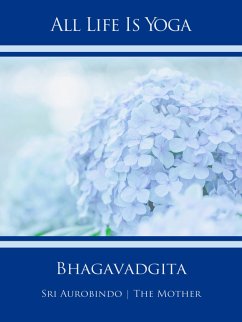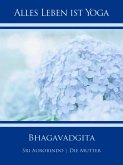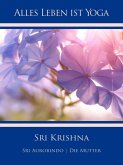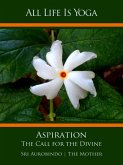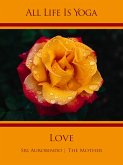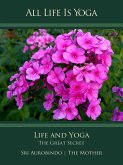Sri Aurobindo considers the message of the Gita to be the basis of the great spiritual movement which has led and will lead humanity more and more to its liberation, that is to say, to its escape from falsehood and ignorance, towards the truth. From the time of its first appearance, the Gita has had an immense spiritual action; but with the new interpretation that Sri Aurobindo has given to it, its influence has increased considerably and has become decisive." (THE MOTHER)
The translation of the Gita printed here was put together from different sources by Anilbaran Roy, one of Sri Aurobindo's direct disciples, who lived in the Sri Aurobindo Ashram in Pondicherry from 1926 to 1964. He relied as much as he could on Sri Aurobindo's translations and paraphrases, which were written as part of the running prose of the "Essays of the Gita". Sri Aurobindo sometimes translated whole slokas, sometimes only isolated words or phrases; some slokas he left untranslated. These translations cover about one-third of the text of the Gita. It should be mentioned that Sri Aurobindo did not consider the passages he translated to be parts of a finished translation of the Gita. In 1934 he wrote to a disciple, "The translations in the Essays are more explanatory than textually precise or cast in a literary style."
Dieser Download kann aus rechtlichen Gründen nur mit Rechnungsadresse in A, B, BG, CY, CZ, D, DK, EW, E, FIN, F, GR, HR, H, IRL, I, LT, L, LR, M, NL, PL, P, R, S, SLO, SK ausgeliefert werden.

